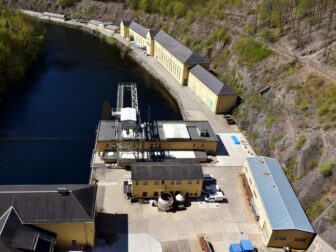Tag - iot based smart water management system
Revolutionizing Resource Conservation with IoT-Based Smart Water Management Systems
Revolutionizing Resource Conservation with IoT-Based Smart Water Management Systems
The advent of the Internet of Things (IoT) has paved the way for unprecedented advances in the management and conservation of natural resources. At the forefront of this revolution is the implementation of IoT-based smart water management systems, which are becoming increasingly pivotal in our efforts to optimize the use of water, the most vital of all resources. IoT-based water management not only ensures a sustainable supply but also fosters economic efficiency and environmental protection.
Smart water management systems leverage a network of sensors and devices connected to the internet to monitor and control the flow and distribution of water. These systems can be employed in various settings, from residential and commercial buildings to vast agricultural fields and municipal water supplies. By collecting data on consumption patterns, detecting leaks, and automating irrigation schedules, smart water systems offer a level of precision and control that traditional water management methods cannot match.
One of the primary advantages of IoT-based water management is the reduction of waste. Water scarcity is a growing concern in many regions of the world, exacerbated by climate change and population growth. By using IoT sensors to detect leaks in real-time, significant amounts of water can be saved from being lost to the environment. Moreover, being able to identify over-usage or inefficiencies in water consumption patterns allows for the implementation of more conservative and targeted water-saving strategies.
In agricultural applications, smart water management systems can lead to substantial improvements in crop yield and quality. Precision irrigation techniques use data from soil moisture sensors, weather forecasts, and plant health indicators to determine the optimal irrigation schedule and volume. This not only conserves water but also reduces energy consumption and minimizes the use of fertilizers, as water is delivered directly to the root zone of the plants where it is most needed.
Urban water management also stands to gain immensely from IoT applications. Smart meters can provide consumers with detailed insights into their water usage, empowering them to make informed decisions about their consumption habits. Furthermore, municipalities can utilize IoT data to improve the operation of water treatment plants, manage stormwater runoff, and ensure the equitable distribution of water across different areas of a city.
The implementation of these advanced systems also has significant economic implications. By reducing the amount of water wasted and enhancing the efficiency of water distribution systems, utility companies and consumers alike can achieve cost savings. The reduction in water usage leads to lower utility bills for consumers and decreases the strain on public water supplies, which can divert funds to other critical infrastructure projects.
Security and privacy concerns do arise with the increased connectivity of IoT devices. Ensuring the cybersecurity of smart water management systems is vital to protect against unauthorized access and potential tampering with the water supply. Consequently, robust encryption and secure data management practices must be integral components of any IoT-based system.
In conclusion, IoT-based smart water management systems represent a transformative approach to preserving and efficiently using our precious water resources. By harnessing the power of technology to collect and analyze data, these systems enable more intelligent decision-making that promotes sustainability, economic viability, and environmental stewardship. As we continue to face the challenges of water scarcity and climate change, the implementation of such innovative solutions will be crucial in securing a safe and reliable water future for generations to come.
